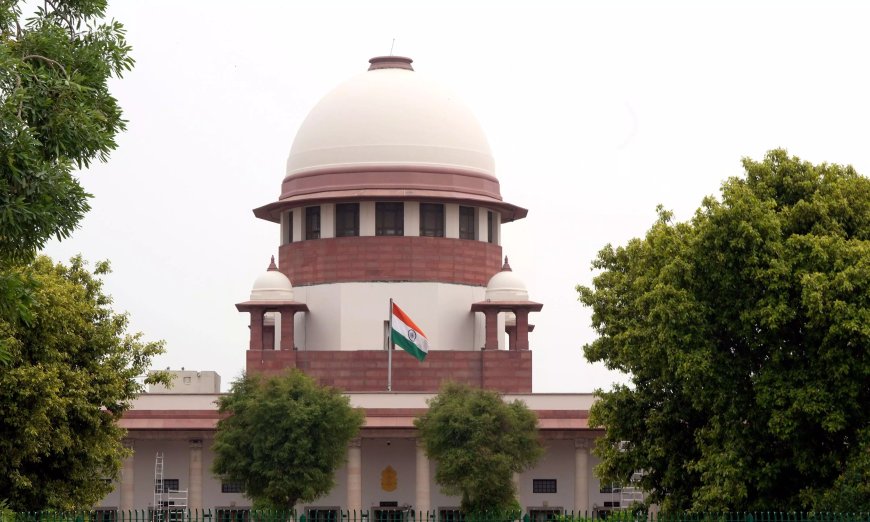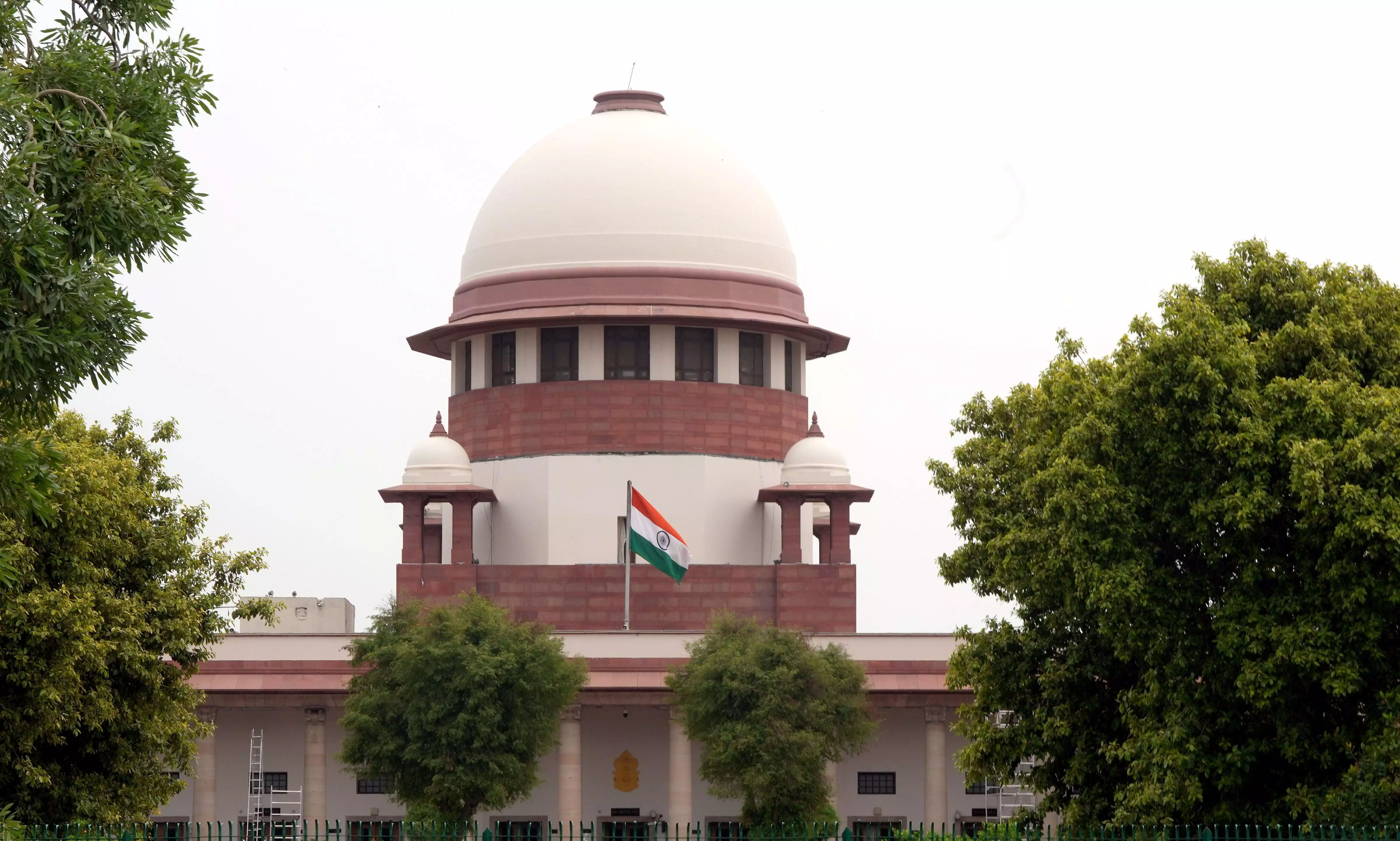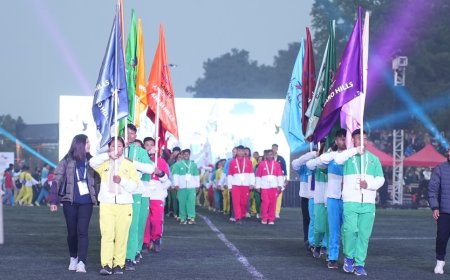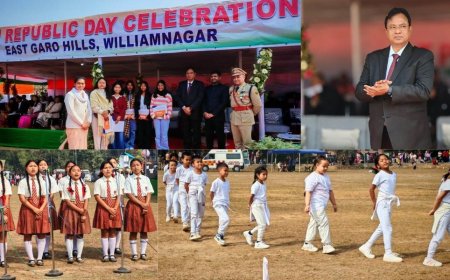Congress moves SC against pleas challenging 1991 places of worship law
New Delhi: The Congress has filed an intervention application in the Supreme Court to oppose the pleas challenging the Places of Worship (Special Provisions) Act, 1991, noting that they are “motivated and malicious attempt to undermine established principles of secularism”. In the application, filed through Congress general secretary K.C. Venugopal, the party defended the law as a reflection of the country’s secular ethos and a product of the popular mandate. The plea emphasised that the 1991, which seeks to preserve the status quo of religious structures as they existed on August 15, 1947, was enacted with broad support during the 10th Lok Sabha when Congress and the Janata Dal party held the majority. The party noted that the Act was part of its election manifesto in 1991, highlighting its long-standing commitment to protecting India’s secular identity. “The POWA (the Places of Worship (Special Provisions) Act) is essential to safeguard secularism in India and the present challenge appears to be a motivated and malicious attempt to undermine established principles of secularism,” the plea said. The party raised several arguments in favour of the law and sought permission of the top court to intervene in the ongoing legal challenge, asserting that its representatives were instrumental in bringing the Act into force. The party countered claims that the Act violates the right to freedom of religion under Article 25 and cited the Supreme Court’s Ayodhya verdict, which stated that the Act aligns with the obligations of a secular state. The plea said that the 1991 law upholds fundamental rights under Articles 25, 26, 27, and 28, making it within Parliament's jurisdiction to enact. “The present petition also erroneously states that the POWA is discriminatory as it is applicable only towards members of the Hindu, Sikh, Jain and Buddhist communities. “A bare perusal of the POWA shows that it promotes equality amongst all religious groups and does not accord special treatment 4 towards specific communities as alleged by the petitioner...,” it said. It dismissed allegations of preferential treatment, pointing to Section 2(c) of the Act, which defines “place of worship” inclusively as temples, mosques, churches, gurudwaras, monasteries, or any other places of public religious worship. Recently, a bench headed by Chief Justice of India Sanjiv Khanna agreed to examine a separate plea of AIMIM chief Asaduddin Owaisi seeking effective implementation of the 1991 places of worship law. On January 6, the Akhil Bhartiya Sant Samiti, a Hindu organisation, moved the top court seeking to intervene in cases filed against the validity of provisions of the 1991 law that asks to maintain the religious character of places as it existed on August 15, 1947.


New Delhi: The Congress has filed an intervention application in the Supreme Court to oppose the pleas challenging the Places of Worship (Special Provisions) Act, 1991, noting that they are “motivated and malicious attempt to undermine established principles of secularism”.
In the application, filed through Congress general secretary K.C. Venugopal, the party defended the law as a reflection of the country’s secular ethos and a product of the popular mandate.
The plea emphasised that the 1991, which seeks to preserve the status quo of religious structures as they existed on August 15, 1947, was enacted with broad support during the 10th Lok Sabha when Congress and the Janata Dal party held the majority.
The party noted that the Act was part of its election manifesto in 1991, highlighting its long-standing commitment to protecting India’s secular identity. “The POWA (the Places of Worship (Special Provisions) Act) is essential to safeguard secularism in India and the present challenge appears to be a motivated and malicious attempt to undermine established principles of secularism,” the plea said.
The party raised several arguments in favour of the law and sought permission of the top court to intervene in the ongoing legal challenge, asserting that its representatives were instrumental in bringing the Act into force.
The party countered claims that the Act violates the right to freedom of religion under Article 25 and cited the Supreme Court’s Ayodhya verdict, which stated that the Act aligns with the obligations of a secular state. The plea said that the 1991 law upholds fundamental rights under Articles 25, 26, 27, and 28, making it within Parliament's jurisdiction to enact.
“The present petition also erroneously states that the POWA is discriminatory as it is applicable only towards members of the Hindu, Sikh, Jain and Buddhist communities.
“A bare perusal of the POWA shows that it promotes equality amongst all religious groups and does not accord special treatment 4 towards specific communities as alleged by the petitioner...,” it said.
It dismissed allegations of preferential treatment, pointing to Section 2(c) of the Act, which defines “place of worship” inclusively as temples, mosques, churches, gurudwaras, monasteries, or any other places of public religious worship.
Recently, a bench headed by Chief Justice of India Sanjiv Khanna agreed to examine a separate plea of AIMIM chief Asaduddin Owaisi seeking effective implementation of the 1991 places of worship law.
On January 6, the Akhil Bhartiya Sant Samiti, a Hindu organisation, moved the top court seeking to intervene in cases filed against the validity of provisions of the 1991 law that asks to maintain the religious character of places as it existed on August 15, 1947.






































